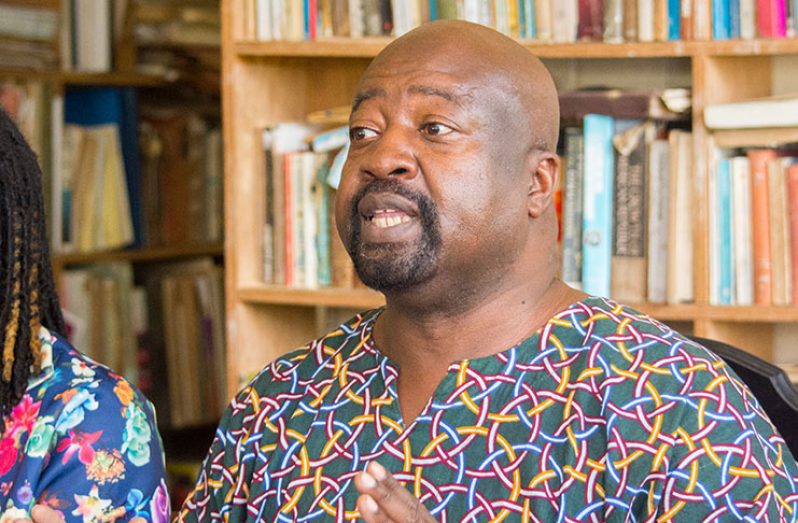–as academics discuss Guyana’s future as a major oil and gas economy
DIRECT cash transfers from the revenues amassed from Guyana’s burgeoning oil and gas industry, if implemented, would be one of the few inherently non-discriminatory policies, according to Political Scientist Professor David Hinds.
Professor Hinds made these remarks at an online forum, launching a working paper series on the topic: “Disruption or Development? Exploring the potential impact of oil exploration in Guyana.”
During the forum, regional academics came together and spoke briefly on their views on Guyana’s developmental trajectory. Much attention was given to the volatile, new industry that the country has become part of, and the interplay between this and the longstanding resource-driven ethnic conflicts in the country.
According to Professor Hinds, there are numerous studies showing that oil wealth is not necessarily distributed “downwards enough” to the larger, working, and lower-class populations in society.
With the direct cash transfers, however, Hinds- who has publicly indicated his support for this policy proposal – stressed that “ordinary people” will be able to benefit from Guyana’s oil wealth.
More importantly, he said, “we see it as one of the few policy proposals that inherently have no discrimination. If you give a direct cash transfer to every household of US$3,000 per year, regardless of ethnicity, it is a way in which people benefit across the ethnic divide.”
He also emphasised that a direct cash transfer to households is not a “handout”, but rather, an added income.
This ‘added income’ is viewed as a necessity by General Secretary of the Guyana Trade Union Conference (GTUC), Lincoln Lewis, in the context of the economic ramifications of the COVID-19 pandemic.
In his Labour Day message, Lewis said “cash transfers will definitely help in times like now, and post-COVID-19. Families need relief, and the most vulnerable amongst us are desperately in need.”
Even though the Economic Commission for Latin America and the Caribbean (ECLAC) has predicted that the ensuing pandemic will result in the biggest economic crisis in Latin America and Caribbean Region, it has projected that Guyana’s economy should grow by 56.4 per cent this year. Guyana’s economy is the only one not expected to contract this year.
ECONOMIC RISKS
Oil production is the factor that is projected to boost the Gross Domestic Product (GDP) growth to unprecedented levels in 2020. However, there are still inherent risks in the local economy, according to the World Bank. These risks encompass the incomplete elections, falling oil prices, and the COVID-19 pandemic.
In addition to these risks, Trinidadian Economist, Dr. Roger Hosein, highlighted that Guyana already has low labour force participation and a high level of illiteracy. And if Guyana decides to pursue direct cash transfers now, he shared his belief that the country will develop a backward bending labour supply curve (that is, at a certain point, higher wages may lead to a decline in labour supply).
The combination of these factors, the economist argued, could also contribute to Guyana jeopardising its expected growth.
“I don’t think the logic of enhancing human capital through education or increasing consumption to promote an improvement in the state and wellbeing of human capital is wrong. I think the mode of intervention is wrong, in my humble opinion,” Dr. Hosein said.
However, the Trinidadian remarked that Professor Clive Thomas – who first drew attention to the direct cash transfer scheme – is the best economist Guyana has ever produced, and even the Caribbean by extension, after Sir Arthur Lewis. And as such, he posited, “Professor Thomas is a very thoughtful person and would not have pulled this (the proposal of cash transfers) out of a hat without careful consideration for some of the eventualities.”
Dr. Hosein, however, maintained that it is too early for the country to pursue this policy, and instead suggested that the country first works on building its institutional capacity, including increasing its ease of doing business and move past the current political impasse.
The working paper series is organised by the Department of Government, Sociology, Social Work, and Psychology under the Faculty of Social Sciences at the University of the West Indies (UWI)- Cavehill Campus, in Barbados. And through this series, the regional academics will be outlining the problems that underpin Guyana, and solutions for solving these.




.png)









